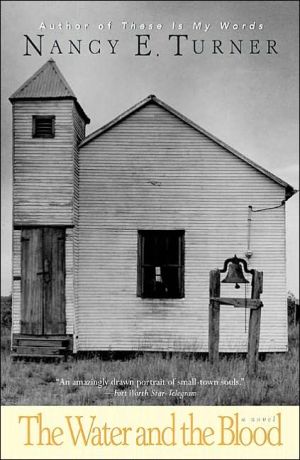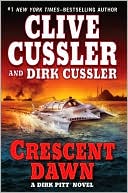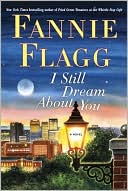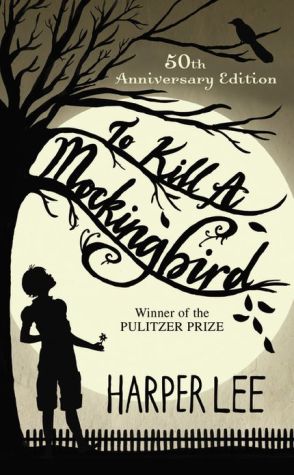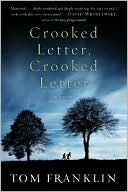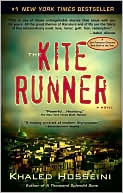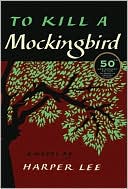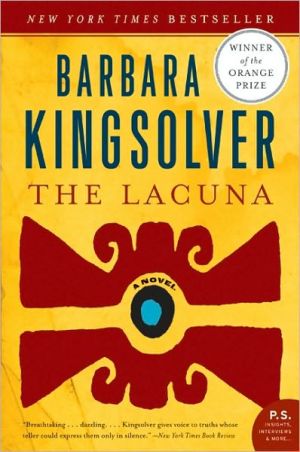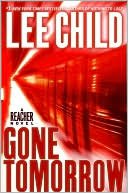Water and the Blood: A Novel
I turned and faced the road we'd come down, my face hard and set. The kids moved on without me. I could still see a slight glow and the murky, gray smoke reaching above the trees, where it spread to the south....\ When I thought they were out of earshot, I took a deep breath. "You lied to me," I whispered toward the building, to all the people it represented, to the hours I'd spent on those hard, split-log seats, and to my childish epiphanies born there .... "You lied," I said. "These are my...
Search in google:
Nancy Turner's award-winning first novel, These Is My Words, opened readers to the challenges of a woman's life in the 19th-century Southwest. Now this extraordinary writer shifts her gaze to East Texas in the years of the Second World War—and to the life of a young woman named Philadelphia Summers, known against her will as Frosty.From the novel's harrowing opening scene, Frosty's eyes survey the world around her—white rural America—with the clarity of an innocent burned by sin. In her mother and sisters she sees fear and small-mindedness, in the eyes of local boys she sees racial hatred and hunger for war. When that war finally comes she escapes to California, and the arms of a Native American soldier. But when she returns to Texas, she must confront not only rejection, but the memory of a crime that has seared her heart for years.Publishers WeeklyTurner, the 2001 finalist for the Willa Cather Award (These Is My Words), mesmerizes once again with an East Texas period piece, starring a young heroine who struggles to escape her abusive mother and smalltown limitations. "We set fire to the Nigra church after the Junior-Senior Halloween costume party": unknown to all but one in a motley group of high school friends, this apparently thoughtless act of vandalism in 1942 Sabine, Tex., hides a darker evil that will haunt them all. Philadelphia "Frosty" Summers was there that night, but the lonely girl whose impoverished family had moved seven times in two years said nothing, even though the congregation of that church, the Missionary Way Evangelicle [sic] Temple, had befriended and supported her. Sheriff John Moultrie's efforts to identify the perpetrators, whose innocent "prank" obscures a murder, weave throughout this coming-of-age WWII tale. Narrator Frosty anchors this portrait of repressive Southern religious dogma, racial bigotry, poverty and cruel ignorance. After graduation, Frosty escapes the confines of Sabine by convincing her parents she must travel to southern California to work in a factory to help the war effort. While there she meets and falls in love with Gordon Benally, a Navajo Indian Marine radio operator who is recuperating from wounds received while a POW. Meanwhile, Marty Haliburton, who instigated the long-ago high school "prank," is now the pastor of Frosty's church in Sabine and a member of the KKK. When Frosty and Gordon visit her family, Gordon is judged "colored" and Marty and others try to kill him. Turner's Frosty is a sympathetic young woman, and the supporting characters are vivid and realistic. Thisbeaautifully written portrait of Southern religious repression and racism is a winner. (Oct.) Copyright 2001 Cahners Business Information.
Chapter OneWe set fire to the Nigra church after the junior-senior Halloween costume party. Marty Haliburton brought the gasoline. Coby Brueller brought his cigarettes and a couple boxes of matches. The Bandy twins came with two pint jars of shinney each pulling down the side pockets of their overalls, and we'd all had several tastes by the time we did it. Those four boys were the root of all evil in our town for most of their lives. But the rest of us were there, too, just as much a part as the boys who spread the gas and fanned the flames.My friends represented a few fairly nice girls and about the sorriest collection of humans caught in the throes of pre-manhood ever scraped together. Maggy, Neomadel, and Garnelle made a little half circle with me in the middle. I guess there's something odd or poetic about me, a girl named Frosty, being in the middle of something burning on a hot October night in East Texas. That bunch of boys and girls would make up about a third of the graduating class of 1942 from Big Thicket High School, but in the fall of 1941 that event still seemed a lifetime away.Neomadel dared me to taste the moonshine, and all the kids giggled as I took the jar. It looked just like water. I put it to my lips and just touched it with the tip of my tongue. Garnelle snickered into her hand. "Coby, don't be pushing that on her," she said.Coby looked back at her and shrugged. "Nobody's making her drink it, are they? Give it back or drink up, Frosty." He held out his open hand toward me. They were all watching closely."Come on," Beans Bandy said. "Gimme a swig.""I'm not drinking after you," I said. "Just give me a second. I'll take a drink.""She won't either, " Neomadel said. "I knew she wouldn't do it.""Nobody has to if they don't want to," Maggy said.I guess I wasn't in the mood to be swept aside like that. I guess I had something in my craw that a good swig of liquid might wash away. I opened my mouth and gulped. The fire surged to a pit somewhere below my navel and boiled out the top, as if steam shot from my ears. My eyes watered; my nose stung; my throat closed like a large hand had reached around my neck and squeezed. From somewhere in the back of my head a little voice said, "She isn't breathing. Slap her on the back, get her to breathe."Black sky and grass and stars and dirt rolled around in my eyes, and my face was pressed flat somewhere wet and dark and froggy-smelling. "Sit her up," the voice said again.Voices swirling in the darkness argued for a second, then I coughed so loud and long I thought my lungs would burst. All I could think of was Garnelle's daddy coming home from the war gas and coughing his lungs out and barely breathing and what if I have to have an iron lung and live in a tube forever? After a few minutes the coughing subsided. I held my elbows tight to my ribs, and I could see the kids circling me."Lookit," Marty said, "We came to do something, and we're gonna do it. You all can horse around later. Pass me that shine." He took a drink, smacking his lips with a satisfied sigh. "Sissies and babies shouldn't be drinking a man's drink anyway."Coby said, "You girls just take a little sip first, till you get the hang of it. Y'all doing all right, Frosty?""I'm fine," I croaked. "Your turn, Neomadel."We passed that jar around the circle, and then we passed it again. I began to feel better than I had all day.It was Marty's idea that we come here tonight. The Bandy boys always had their hands on shinney, so that part probably wasn't planned. Marty had a rusty yellow can full of at least three weeks' worth of gasoline, and he was circling the little shack like he had a special purpose on earth, sizing up the place, checking for anybody hiding out that might tell on us. Satisfied, he returned to our cluster and said in a whisper, "Let's do it." Then he held out his hand to Coby. "Gimme them cigarettes, Cobe."Coby said, "Nothing doing. You pour the gas, someone else lights. Otherwise you're liable to set yourself up, too." Coby upended the first jar of shine and finished it off, smacking his lips and belching to punctuate the act. Farrell Bandy had already started on a second one. Beans had a whole one to himself.The boys circled the little church, marching, pouring gas in arcs against the sides so the liquid left slick black hooks painted on the walls. The girls and I stepped back, watching intently as they walked round the building a second time, drizzling the gasoline into the damp ground. I took another step into the shadows cast by long pines under the watered-down moonlight. I knew there could be nothing hiding in the darkness any meaner than I was.The scratch-puff of matches being struck made me keen in the direction of the sound. Abruptly there was a hustling noise, jostling, elbowing, and out of the darkness the boys ran, headed toward us. We waited. Nothing happened. After all the gas was gone and most of the matches, there was still only a meager flicker of flame on one side. It had rained just yesterday. The wood was soaked."Let's go home," Coby said. "This is no good anyhow. There's enough there to show 'em we meant business. It don't have to really burn..." The Water and the Blood. Copyright © by Nancy Turner. Reprinted by permission of HarperCollins Publishers, Inc. All rights reserved. Available now wherever books are sold.
\ Publishers WeeklyTurner, the 2001 finalist for the Willa Cather Award (These Is My Words), mesmerizes once again with an East Texas period piece, starring a young heroine who struggles to escape her abusive mother and smalltown limitations. "We set fire to the Nigra church after the Junior-Senior Halloween costume party": unknown to all but one in a motley group of high school friends, this apparently thoughtless act of vandalism in 1942 Sabine, Tex., hides a darker evil that will haunt them all. Philadelphia "Frosty" Summers was there that night, but the lonely girl whose impoverished family had moved seven times in two years said nothing, even though the congregation of that church, the Missionary Way Evangelicle [sic] Temple, had befriended and supported her. Sheriff John Moultrie's efforts to identify the perpetrators, whose innocent "prank" obscures a murder, weave throughout this coming-of-age WWII tale. Narrator Frosty anchors this portrait of repressive Southern religious dogma, racial bigotry, poverty and cruel ignorance. After graduation, Frosty escapes the confines of Sabine by convincing her parents she must travel to southern California to work in a factory to help the war effort. While there she meets and falls in love with Gordon Benally, a Navajo Indian Marine radio operator who is recuperating from wounds received while a POW. Meanwhile, Marty Haliburton, who instigated the long-ago high school "prank," is now the pastor of Frosty's church in Sabine and a member of the KKK. When Frosty and Gordon visit her family, Gordon is judged "colored" and Marty and others try to kill him. Turner's Frosty is a sympathetic young woman, and the supporting characters are vivid and realistic. Thisbeaautifully written portrait of Southern religious repression and racism is a winner. (Oct.) Copyright 2001 Cahners Business Information.\ \
